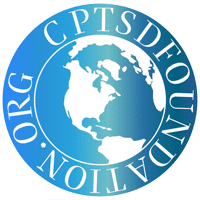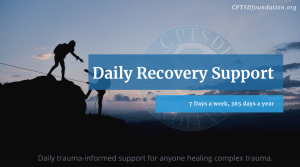Childhood should be a carefree time full of learning and joy. However, many children aren’t that lucky and grow up in homes that are dysfunctional and abusive. These encounters are known as adverse childhood experiences and change the future of the child forever.
One question that burns in the minds of many survivors and researchers alike is how do positive childhood experiences (PCEs) come into play? Can positive childhood experiences help an abused child cope in some way?
This article will reintroduce ACEs and introduce the concept of PCEs.
What are Adverse Childhood Experiences (ACEs)?

Adverse childhood experiences are traumatic events that happen in childhood between the ages of 0-17 years. Some examples of ACEs are below.
- Experiencing violence, neglect, or abuse
- Witnessing violence in the home or community
- Having a family member attempt to die by suicide
- Growing up in a home with substance abuse problems
- Growing up in a home where one or both parents have a serious mental health problem
- Living in a home where there is parental separation
- Living in a home where a household member is in jail or prison
The above list is only a partial list of the negative events that many children face.
Adverse childhood experiences are linked to chronic health problems, mental illness, substance abuse disorders, and impact education achievements, job capabilities, and earning potential in adult survivors.
What is the ACEs Study?
In the 1990s, Vincent Felitti, a doctor who worked for Kaiser Permanente in San Diego, interviewed patients who were in a weight loss program why they had left the program after they were doing so well. Of the many patients Dr. Felitti interviewed, the most common answer was that losing weight made them feel more vulnerable. Digging further, Dr. Felitti discovered that his patients also had something else in common, they all reported experiencing childhood sexual or other abuse when growing up.
Dr. Felitti’s findings from his interviews gained the interest of Dr. Robert Auda who worked for the Centers for Disease Control (CDC) and the two doctors who initiated the CDC-Kaiser Adverse Childhood Experiences Study that ran from 1995-1997 and involved 17,000 participants. The doctors wanted to know how ACEs affected adults who had experienced ACEs and followed many of them long-term to see the results ACEs had on their lives.
Through the ACE study, the researchers found that nearly 30% of participants had experienced physical abuse, and 15% had experienced emotional neglect. However, in 2005 Dube et al. reported in a paper that out of 17,337 adults who participated in their study, 16% (1 in 6) men and 25% (1 in 4) women reported having suffered sexual abuse before their 18th birthdays.
From the ACEs study, the researchers were able to establish a simple questionnaire that can tell participants how many ACEs experiences they have on a scale from 1-10. However, it is vital to remember that if your score is high, that does not mean you are broken but it may mean you should seek professional assistance.
An Introduction to Positive Childhood Experiences

If you are like most of us who identify as survivors of ACEs, you would rather hide from this important topic. Many survivors may be wondering why we would broach the subject of positive childhood experiences (PCEs), but the impact they have on our adult lives is incredibly relevant and vital to understand.
The more positive childhood experiences you had growing up, the less likely you are to suffer the long-term consequences of adverse childhood experiences. This does not mean that your emotional and physical responses to ACEs are invalid. We can all agree that you went through hell. However, the acknowledging of the presence of PCEs must come into play so that we can further understand who we are and enhance our healing.
A study conducted in 2019 found that positive childhood experiences had just as strong of an effect on the future mental and relational health of adults who had lived through adverse childhood experiences. These findings suggest that PCEs can indeed mitigate the effects of some of the adverse childhood experiences one may encounter.
What these and other researchers have found is that it is critical to have positive childhood experiences. But what are PCEs? Answer the following questions to find out how many positive childhood experiences you had growing up.
How much or how often during your childhood did you:
- Felt able to talk to your family about your feelings?
- Felt your family stood by you during trying times?
- Enjoyed participating in community traditions?
- Felt a sense of belonging in school?
- Felt supported by friends?
- Had at least one parent (adult) who took a genuine interest in you?
- Felt safe and protected by an adult in your home?
The above positive childhood experiences can leave a strong impact on growing minds and help to build resilience in young children. The more positive childhood experiences you had the greater the chance that the negative effects of ACEs will have on your life in the future.
Bringing It All Together
Adverse childhood experiences are negative events that happen to kids while they are growing up. To be certain, everyone experiences at least one ACE in their life but the impact on the life of the child and later when they become an adult of experiencing many ACEs is great and cannot be ignored.
However, research is now being conducted that shows that positive childhood experiences, such as having two adults who genuinely show interest in an abused child, can aid in mitigating the long-term impacts on the life of that person.
No one can or should ignore the devastating changes that occur because of ACEs nor should we hide from the fact that most survivors have had at least one positive childhood experience while growing up.
“Often it isn’t the initiating trauma that creates seemingly insurmountable pain, but the lack of support after.” – S. Kelley Harrell
“You can recognize survivors of abuse by their courage. When silence is so very inviting, they step forward and share their truth, so others know they aren’t alone.”- Jeanne McElvaney

If you or a loved one live in the despair and isolation that comes with complex post-traumatic stress disorder, please, come to us for help. CPTSD Foundation offers a wide range of services, including:
- Daily Calls
- The Healing Book Club
- Support Groups
- Our Blog
- The Trauma-Informed Newsletter
- Daily Encouragement Texts
All our services are reasonably priced, and som

e are even free. So, to gain more insight into how complex post-traumatic stress disorder is altering your life and how you can overcome it, sign-up; we will be glad to help you. If you cannot afford to pay, go to www.cptsdfoundation.org/scholarship to apply for aid. We only wish to serve you.

My name is Shirley Davis and I am a freelance writer with over 40-years- experience writing short stories and poetry. Living as I do among the corn and bean fields of Illinois (USA), working from home using the Internet has become the best way to communicate with the world. My interests are wide and varied. I love any kind of science and read several research papers per week to satisfy my curiosity. I have earned an Associate Degree in Psychology and enjoy writing books on the subjects that most interest me.




I suggest you interview victims of childhood sexual abuse and see how much positive childhood experiences helped them. Start with Marilyn Van Derbur.